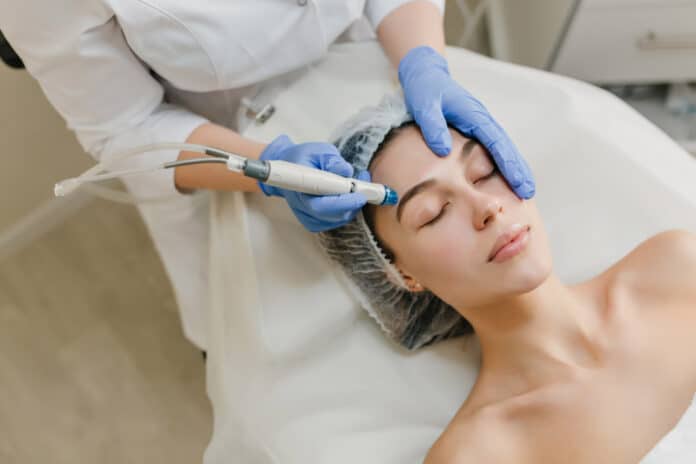Skin lightening is encouraged by colorism, a system of inequality that regards lighter skin as more attractive and advantageous. It acts as a motivation behind skin lightening. A new Northwestern Medicine study suggests skin lightening is prevalent in the U.S. among skin of color individuals – particularly women – but those who use those products don’t know the risks.
Lead investigator Dr. Roopal Kundu, founder and director of the Northwestern Medicine Center for Ethnic Skin and Hair, said, “The most surprising finding was the lack of awareness of ingredients in products being purchased over the counter and their potential detrimental effects. These products are bought from chain grocery stores, community-based stores, or even online and do not undergo the same type of regulation as a large-chain store or prescription products.”
Previous research demonstrates that these items are frequently contaminated with other substances like steroids and mercury that may harm the skin.
One of Kundu’s patients spent many years bleaching his entire face with the whitening agent hydroquinone, also known as a bleacher. The patient now has persistent hyperpigmentation.
Kundu said, “Doctors prescribe skin lighteners for some skin conditions such as melasma, and the products can be safely used under physician guidance. But most people who use skin lighteners also do not consult a medical provider before use.”
Participants (80% of women) who used skin lighteners felt that colorism was more pervasive than those who did not. There is a concept that having lighter skin is viewed more favorably within a group—for example, Southeast Asian or African populations—and displays itself by making someone more appealing to a mate or more likely to secure a job. The idea is that success in both personal and professional life is related to having lighter skin.
Most of Kundu’s patients interested in skin lightening do so to balance out their skin tone as a result of a skin condition. However, one-fourth of survey participants desired to lighten their skin generally. A patient of Kundu’s lately disclosed to her that his objective was to lighten his skin fully.
Researchers sent an anonymous 19-question survey to people in the U.S. with skin of color inquiring about their demographics, opinions toward colorism, satisfaction with their skin tone, and skin-lightening practices to perform the study. 238 of the 455 respondents to the study identified as Black, 83 as Asian, 84 as multiracial, 31 as Hispanic, 14 as American Indian or Alaskan Native, and five as other.
75.3% of respondents who reported using skin-lightening products said they did so to cure a skin condition such as acne, melasma, or hyperpigmentation. 21.3% of respondents said they had ever used skin-lightening products. The other people used the products to lighten their skin generally.
Kundu said, “As dermatologists, we hope to understand the cultural and societal influences that impact skin health and treatment of skin disease. Cultural mindfulness for clinicians as they get to know their patients battling pigmentary issues allows for the safe, effective, comprehensive, and compassionate treatment of dermatological disease across all communities.”
Journal Reference:
- Daftary, Karishma MDa; Poondru, Sneha BAa; Patel, Nina MSb; Shramuk, Maxwell MSc; Muhammad, Lutfiyya PhDc; Kundu, Roopal V. MDa,*. Colorism attitudes and use of skin lightening agents in the United States. International Journal of Women’s Dermatology 9(3):p e092, October 2023. | DOI: 10.1097/JW9.0000000000000092
